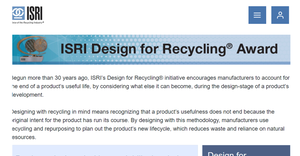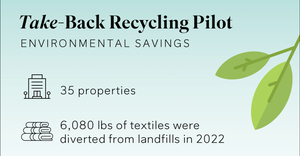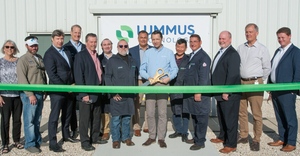November 20, 2015
Bill Sheehan
What will the solid waste management profession look like in 2030?
When I began my work as a public interest advocate two decades ago, climate change and ocean acidification were not on my radar. (Even though we now know that they were on Exxon’s radar!) I was instead focused on sustainable production and consumption, resource depletion and toxic pollution.
And while those are undeniably problems that need attention, 20 years down the road we’ve come to realize that the scale of accelerating threats to the biosphere caused by burning fossil fuels requires an unprecedented paradigm shift. We live in an era of increasingly human-dominated ecosystems, what scientists are calling the Anthropocene, the Age of Man. Business as usual is simply no longer an option if civilization as we know it is to survive.
Whether or not humans can deliberately wean ourselves from reliance on fossil fuels in time to avert catastrophe, the odds are great that most of us alive today will face radical adjustments to our ways of life. One way or another, our fossil-fueled economy and lifestyles will come to an end.
In light of this let’s look at how the solid waste management profession could change to be relevant in a world facing climate disruption. Currently in the United States, local governments act in much of the country as service providers for collecting both trash and recyclables, especially from residences; elsewhere they oversee franchises and contracts to ensure that the job gets done.
But what our communities will need in the future is resilience to the inevitable system shocks that will occur as climate disruptions become more frequent, and help transitioning to low carbon alternatives. Managing—as in making disappear—the material stuff of our high-throughput, carbon-intensive global economy will no longer be what’s needed.
The “waste” now managed by solid waste management departments is predominantly composed of organic discards (food scraps and yard debris) and manufactured discards (products and packaging). Both industrial agriculture and manufacturing are highly dependent on fossil fuels. In the future it’s likely that both will be disrupted by the effects of climate change, and with them our cities and communities that are dependent upon these systems. While new technologies may help us adapt in some areas, it’s highly unlikely that we’ll be able to scale up or invent alternative energy sources that can replace fossil fuels in the time available. Inaction while hoping for techno-fixes is delusional.
The key fact of a world not based on fossil fuels is that many activities will of necessity become more local. Global and long-distance chains that supply our food, goods and modern conveniences will become increasingly expensive, in many cases untenable. Products made for limited use and quick disposal will become luxuries rather than commonplace. Economics will make local manufacturing and food production more competitive. Reuse and repair will become more commonplace.
Roles of both business and government will change. There will still be a need for large-scale manufacturing if we are to meet the needs of eight or nine billion people. But the notion that manufactured discards are public responsibilities will change.
Those who make and sell goods will need to take full life cycle responsibility for what they put on the market, including ensuring that their products are returned into commerce when consumers are done with them. (Government has a critical role to play in ensuring that outcomes are achieved in the interest of people and the planet, rather than just selling more stuff.)
Transferring responsibility for managing product discards from government to the private sector is important for sustainability. Government is poorly suited to managing highly diverse discarded private goods and marketing them in global commodity markets. Some have argued that this has led to an overemphasis on garbage disposal by municipalities. An intriguing and largely unexplored question is the extent to which the provision, to manufacturers by local governments, of unlimited “free” disposal services has enabled the production of goods designed for rapid obsolescence–and to our throwaway society generally.
Producer responsibility is necessary but not sufficient for sustainability. The latest trend in the industry is to rebrand solid waste management as sustainable materials management. While acknowledging the importance of upstream and systemic factors is good, the retention of the word management may be a telltale sign that the basic paradigm has not shifted enough. As Martin Melosi documented in Garbage in the Cities, the solid waste management profession has been dominated by engineers (usually within public works departments) for the past century. The impulse of engineers is to solve problems, not ask who created them. We need the use of materials to be sustainable, but we need to ask who should responsible for managing materials responsibly before rushing in to manage the problem.
Local government solid waste personnel are in a position to be part of the solution. As guardians of the public interest, local governments should focus on strengthening local reuse and repair economies, rather than on collecting and marketing product discards. Much needs to be done with educating citizens to consume responsibly, share resources where appropriate, and extract the maximum utility from goods. Resilience professionals will need to think more in terms of conserving embedded energy in materials, and less in terms of tonnage of materials handled.
When producers have primary responsibility for the full-life cycle of their products, local governments can refocus time and resources on facilitating the transition to low-carbon, resilient communities. Public resources can be reassigned to ensuring that organics are collected and used for beneficial purposes. That’s hugely important because food scraps are a major contributor to climate change when they turn to methane that escapes from landfills. Nationally, less than 5 percent of food scraps are composted.
Some solid waste departments have already rebranded as resources departments or have been subsumed within sustainability divisions. The next step is to help communities prepare for the material transition to life with more local, repairable goods made and transported by renewable energy.
The solid waste management profession, only a century old, stands at a crossroads. Local governments got into the business when cholera was rampant in our cities. Along the way they’ve enabled the throwaway society. But now in the face of game-shifting environmental, social and economic disruptions, solid waste managers are well positioned to become part of the solution by helping the transition to local, resilient communities.
Bill Sheehan is founder and strategic advisor for UPSTREAM, a national environmental organization dedicated to creating a healthy, sustainable and equitable society by addressing the root causes of environmental harm.
You May Also Like


